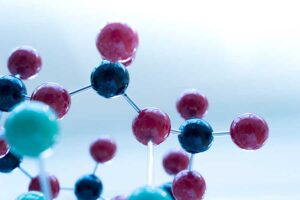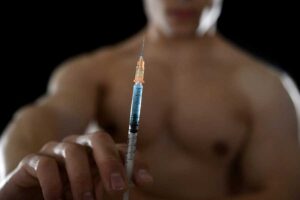
Is HGH a Steroid? What You Should Know About Human Growth Hormone
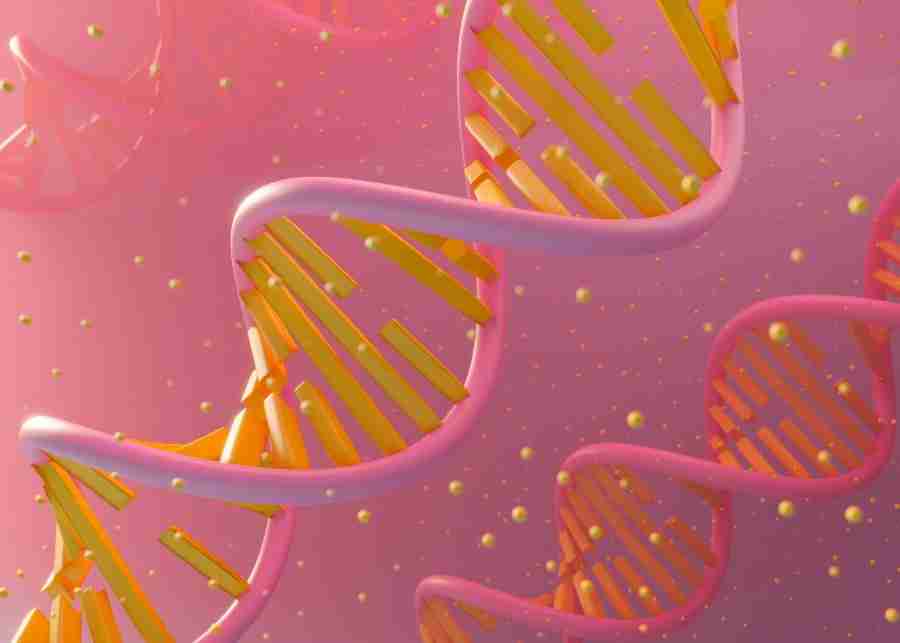
What do you think when you see a bodybuilder showing off their huge and lean muscles? Many people believe that the only way to build such an enviable physique is by taking steroids.
If you’ve thought about this, don’t be ashamed. We know that these are common drugs when it comes to bodybuilding and sports. Even many Hollywood actors take them just to have bigger and more muscular bodies.
However, we need to clarify something: this is a common misconception. Although many people take steroids to build those physiques, they aren’t the only products you might see in these individuals’ drug programs. Perhaps you haven’t heard about a very important one: Human Growth Hormone (HGH).
This leads to several questions: Is HGH a steroid? Why are people using a synthetic version of this hormone?
The short answer to the first question is no. It isn’t a steroid. Actually, HGH is a naturally occurring hormone produced by the pituitary gland, which is that small pear-shaped organ located in the brain that many consider to be the “master.”
This short definition may clarify your doubts, but there are still many things to learn about it. So, read on!
What Is Human Growth Hormone (HGH)?
First things first, let’s answer the most important question of all: What is HGH?
Well, HGH, which stands for “Human Growth Hormone,” is a peptide hormone primarily produced by the anterior pituitary gland. This master gland, located at the base of the brain, regulates vital bodily functions.
HGH is composed of 191 amino acids and is essential for growth, development, and various metabolic processes.
Naturally produced HGH plays a major role in childhood and adolescence, stimulating growth in bones, muscles, and organs. However, it continues to regulate metabolism, body composition, and overall well-being throughout adulthood.
Understanding What Synthetic Human Growth Hormone Is
Synthetic HGH, identical in structure to the naturally occurring hormone, is produced through recombinant DNA technology. Thus, it’s often called “Recombinant Human Growth Hormone,” too.
For example, at ECBT, you can find lab-produced HGH under the following brand names: Genotropin, Geriostim Aqua, Cinnatropin, Zptropin, Somatropin, and Spectros.
These laboratory-created versions have become invaluable in treating certain medical conditions, such as growth hormone deficiency, Turner and Prader-Willi syndrome, muscle atrophy, and chronic kidney disease.
Although synthetic HGH has been used as a prescription medication under medical supervision for years, many also take it to increase muscle mass, slow down aging, burn fat, and other purposes.
How Is HGH Released?
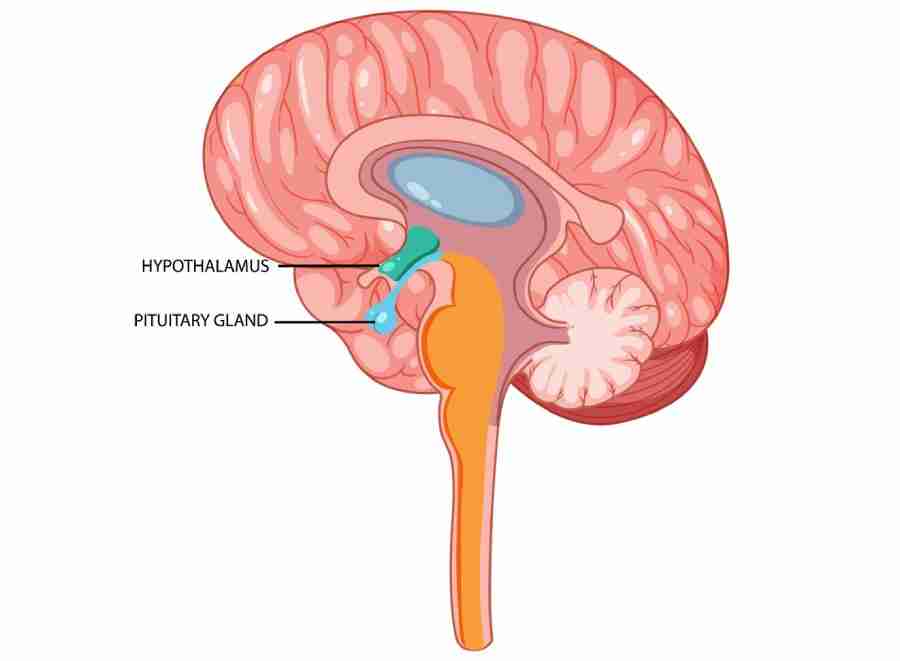
The pituitary gland releases HGH throughout the day, especially at night. Several hormones and a region of the brain called the hypothalamus play a key role in this process.
Growth hormone-releasing hormone (GHRH) stimulates its production, while somatostatin inhibits it. This balance ensures optimal HGH levels.
Insulin-like growth factor 1 (IGF-1), primarily produced by the liver in response to HGH, is also part of those hormones that influence its secretion.
IGF-1 acts as a feedback inhibitor and can signal the pituitary gland to reduce HGH production if levels are high in order to maintain balance. Contrastingly, hormones such as thyroxine, ghrelin, and glucocorticoids can stimulate its release.
Different physiological factors also impact HGH secretion. Exercise, stress, sleep, and low blood sugar levels (hypoglycemia) tend to increase its production, while high blood sugar (hyperglycemia) often suppresses it.
Additionally, the availability of amino acids, the building blocks of proteins, can influence HGH release.
What Are Normal Human Growth Hormone Levels?

HGH levels fluctuate based on various factors, including age, gender, physiological conditions, and time of the day. However, there are average ranges that can serve as guides. These are:
- Children: 10-50 ng/mL
- Adult men: 0.4-10 ng/mL
- Adult women: 1-14 ng/mL
Children generally have higher HGH levels compared to adults. Plus, of the latter group, women tend to exhibit slightly higher levels than men.
It’s important to know that these ranges don’t apply to all people because they tend to vary. Before deciding if you need HGH replacement, request a lab test and talk to a healthcare professional.
Why People Take Synthetic HGH
As we mentioned before, this synthetic version is primarily used for medical purposes, especially in HGH replacement therapy, a treatment option for people whose bodies aren’t producing enough of this hormone naturally.
When someone produces poor growth hormone levels, it’s considered a “deficiency.” In children, this condition can hinder normal growth and development, while it could cause several health issues in adults, such as decreased muscle mass, fatigue, body fat, and weakened bones.
Synthetic HGH therapy is used to manage growth hormone deficiency and improve people’s overall well-being.
Moreover, this lab-produced version is employed by people who want to build muscle mass, enhance their physical appearance, or boost their athletic performance. This treatment is often known as “the HGH cycle.”
Issues with Low HGH Levels

Both children and adults can experience growth hormone deficiency if their bodies fail to produce adequate amounts of HGH. However, the implications are different for each group. Let’s go over each one!
Growth Hormone Deficiency in Adults
In adults, growth hormone deficiency can significantly impact overall health and well-being. Characterized by a decline in HGH production, hypopituitarism is usually the main cause. This condition describes a tumor that damages the hypothalamus and pituitary gland.
If your body produces poor growth hormone levels, you may experience the following symptoms:
- Fat accumulation, especially around the abdomen and internal organs
- Decreased muscle mass
- A noticeable loss of muscle tone
- Reduced physical endurance
- Frequent fractures and increased risk of osteoporosis due to reduced bone density
- Reduced energy levels and persistent fatigue
- Difficulty performing daily activities
- Sudden and uncontrollable changes in mood
- Depression, anxiety, and irritability
- Difficulty concentrating and reduced mental sharpness
- Memory lapse
When it occurs in adults, growth hormone deficiency may also increase the risk of heart disease, high cholesterol, and type 2 diabetes. Therefore, healthcare providers usually recommend patients take synthetic HGH versions, such as Cinnatropin, Somatropin, Zptropin, and Spectros.
Growth Hormone Deficiency in Children
In children, growth hormone deficiency is particularly concerning because it directly impacts physical development. When infants don’t produce enough HGH, their growth rate slows down significantly.
These are common signs of growth hormone deficiency in children:
- Short stature, consistently below the average height of same-age kids
- Younger-looking face
- Chubby body build
- Impaired hair growth
- Delayed puberty or no signs of physical changes associated with adolescence
- Slower skeletal maturation than expected for chronological age
- Potential learning difficulties and challenges in school
- Emotional difficulties related to being shorter than other children
The causes of growth hormone deficiency in infants can be varied. Some children are born with hypopituitarism or a pituitary gland abnormality, while others experience this issue due to acquired conditions, such as brain tumors, head injuries, or infections.
In these cases, children are usually prescribed lab-made HGH under the brand name “Genotropin” or “Geriostim Aqua.”
Issues with High HGH Levels

Excessive production of HGH can lead to acromegaly. While relatively rare, this condition can have a significant impact on both children and adults, as it can cause abnormal growth in the hands, feet, and facial features.
Acromegaly in Children
In children whose growth plates haven’t closed, abnormally high HGH levels can result in a condition called gigantism. However, this is rare.
Unlike HGH deficiency, which hinders growth, gigantism accelerates it dramatically. If this condition is left untreated, children may develop long bones and grow too quickly up to 7 feet tall or over.
Infants with gigantism may also experience other symptoms besides excessive height, such as:
- A disruption in “puberty,” the normal hormonal processes associated with adolescence
- Headaches caused by increased intracranial pressure due to rapid growth
- General fatigue and weakness
Acromegaly in Adults
Acromegaly primarily affects people after their growth plates have fused in adulthood. However, it doesn’t cause increased height.
Instead, this condition causes existing bones to become thicker and soft tissues to become larger, leading to characteristic physical changes, such as:
- Enlarged hands and feet
- Altered facial features, such as prominent jawline, enlarged nose, and thickened lips
- Increased bone density
- Enlargement of other skeletal structures and internal organs, such as the heart and liver
More often than not, acromegaly is caused by a non-cancerous tumor in the pituitary gland that overstimulates HGH production. Unfortunately, this condition is linked to a higher risk of certain health complications, including the following:
- Metabolic and endocrine disorders
- High blood pressure
- Heart disease and other cardiovascular problems
- Respiratory issues
- Type 2 diabetes
- Sleep apnea
- Joint and muscle pain
- Headaches and vision problems
- Psychological issues, such as depression and anxiety
Growth Hormone Treatment
Although treatments are different for each group, both children and adults with growth hormone deficiency can benefit from HGH therapy. However, it’s contraindicated for people with acromegaly, as it can exacerbate the condition and worsen the symptoms.
Potential Side Effects of Synthetic HGH
While synthetic HGH treatment can be great for specific medical conditions, it’s essential to be aware of its potential side effects, which may include the following:
- Increased risk of certain cancers
- Gynecomastia
- Fluid retention
- Joint and muscle pain
- Edema
- Insulin resistance
- Carpal tunnel syndrome
While some side effects might be manageable for certain individuals, others may pose more significant health concerns. That’s why it’s important to consider these risks and always consult with a healthcare professional before initiating any HGH therapy.
What Are Steroids?
As we explained above, synthetic HGH isn’t a steroid, but it’s important to define this term to understand why people often confuse both.
In essence, steroids are organic compounds with a specific molecular structure and a key role in the body.
Testosterone, for example, is a naturally occurring steroid. This essential hormone helps men develop male characteristics, such as muscle mass, bone density, and secondary sex traits.
However, the term “steroids” is often linked to man-made versions of naturally occurring hormones that are typically used as performance-enhancing drugs in sports and bodybuilding to boost muscle growth and strength.
Steroids can be divided into two categories:
- Anabolic-Androgenic Steroids (AAS): This group includes synthetic derivatives of testosterone primarily designed to build muscle and enhance performance. That’s why they’re considered “performance-enhancing” drugs.
- Corticosteroids: This category encompasses those steroid hormones with powerful anti-inflammatory and immunosuppressive properties that are used to treat allergies, asthma, and other medical conditions.
Understanding the Differences Between HGH and Steroids
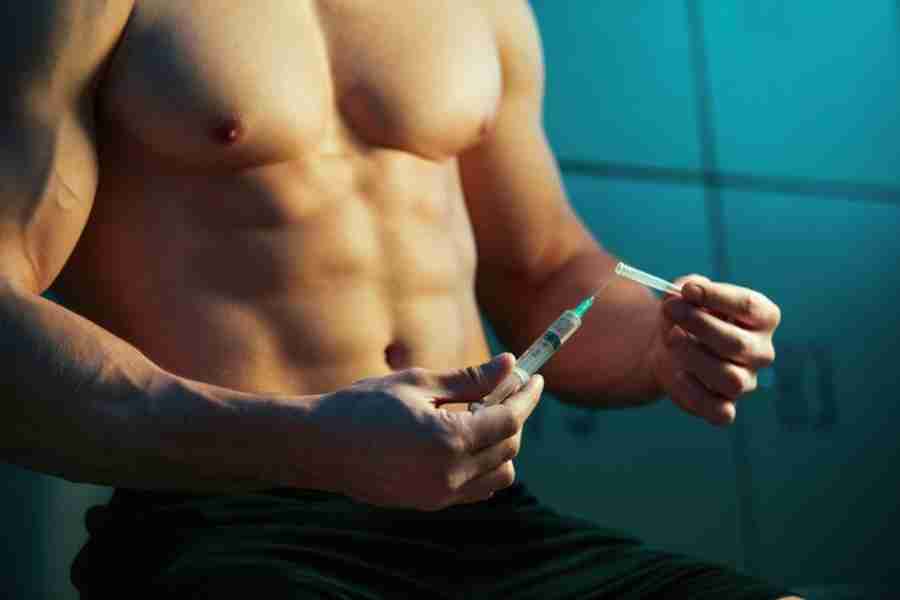
In an “HGH vs. Testosterone” comparison, we could say that both are similar. The two synthetic versions mimic a hormone that the body produces naturally. However, there are important differences between recombinant growth hormone and anabolic steroids. These are:
- Target receptors: HGH primarily binds to somatropin receptors, stimulating the production of IGF-1, which then interacts with insulin and IGF receptors to influence various cellular processes. In contrast, steroids attach to androgen receptors, impacting muscle growth and other testosterone-regulated functions.
- Muscle-building effects: Steroids are generally considered more potent for directly stimulating muscle growth. However, HGH may indirectly contribute to muscle gain by enhancing protein synthesis and reducing muscle breakdown.
- Fat burning: While some steroids can promote fat burning, the effectiveness varies depending on the specific product. Although research is ongoing, HGH seems to do a better job when it comes to fat metabolism.
- Side effects: Both HGH and steroids can have side effects. HGH may cause temporary issues, such as fluid retention and carpal tunnel syndrome. Steroids carry higher, long-term risks, including potential changes in libido, acne, and hair loss. Suppressing natural testosterone production is another significant concern with their use.
- Natural hormone production: Steroid use can significantly suppress natural testosterone production, requiring post-cycle therapy (PCT) to restore hormonal balance. Although its long-term effects are still under investigation, HGH generally doesn’t stop natural growth hormone secretion.
- Availability and cost: Steroids are often more accessible and cheaper than HGH, but this also increases the risk of encountering counterfeit products. High-quality HGH is more expensive, but you can easily find great synthetic versions at reputable shops like ECBT.
HGH and Steroid Stacks
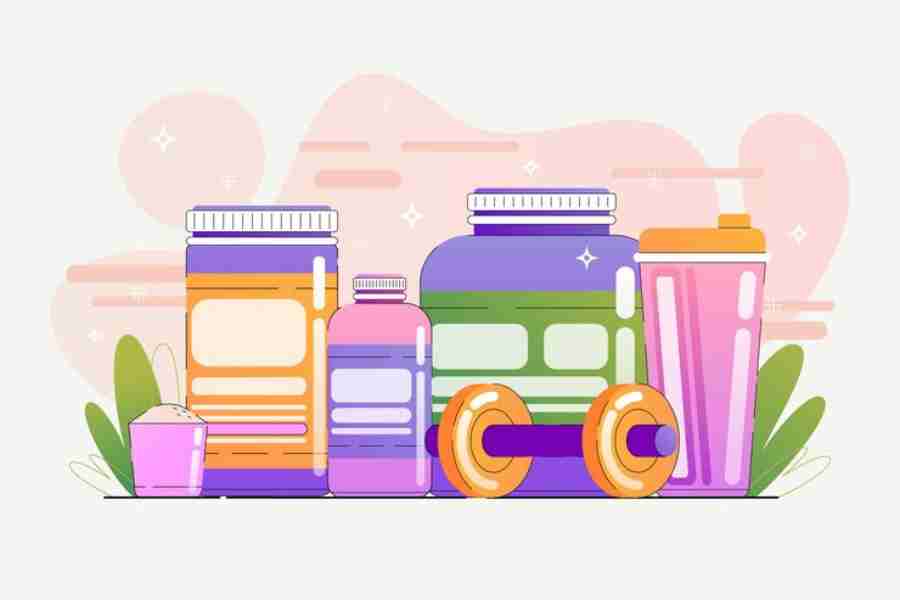
While HGH and steroids are both used in bodybuilding circles, they have different mechanisms of action. Some people leverage these differences to stack the two compounds in mass or cutting cycles.
HGH: How It Works
HGH’s influence on the body is multifaceted, impacting both muscle growth and fat loss as follows:
- Muscle growth: HGH stimulates muscle tissue growth through a two-pronged approach. Indirectly, it triggers the liver to produce IGF-1, a powerful anabolic hormone that enhances muscle protein synthesis. Directly, it promotes hyperplasia, a process where muscle cells divide, creating more muscle mass.
- Fat loss: HGH effectively targets fat stores, mobilizing and transporting them to the mitochondria for energy expenditure. This fat-burning process is particularly noticeable in the abdominal region.
Due to the simultaneous promotion of muscle growth and fat loss, HGH is a great option for bodybuilding, especially if combined with a healthy diet.
Steroids: How They Work
Unlike HGH, steroids attach to androgen receptors within muscle cells, stimulating protein synthesis and, ultimately, muscle growth.
The potency of steroids varies significantly. Testosterone is often used as a benchmark, with its anabolic index set at 1. Steroids with higher anabolic indices, such as trenbolone (5), bind more effectively to androgen receptors and offer a stronger muscle-building effect.
Combining HGH and Steroids
Due to their complementary effects, HGH and steroids are often combined in stacks to optimize results. These are the reasons why many people do it:
- HGH and steroids exert effects on different receptors. If combined, both offer distinct benefits for muscles.
- Combining HGH and steroids can limit the side effects of each.
Although HGH is considered a safer alternative compared to steroids, keep in mind that both can be risky if not administered properly, especially if you combine them.
Be careful if you plan to use them, always buy injectable HGH from reputable vendors like us, ECBT, and seek professional guidance!
Final Thoughts: Is HGH a Steroid?

As we mentioned above, HGH isn’t a steroid. Instead, it’s a naturally occurring hormone that has been synthesized through recombinant DNA technology to make it readily available to those who need it.
Many people combine HGH and steroids to achieve better results in bodybuilding and other sports. However, this can put your health at risk. Before starting any treatment, remember to seek help from a healthcare professional.
And if you think that synthetic HGH is a safer treatment for you, don’t hesitate to check out our website! At ECBT, we offer the lab-produced versions you’re looking for, such as Cinnatropin, Genotropin, Geriostim Aqua, Zptropin, Somatropin, and Spectros!


